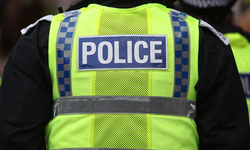I think there's a common misunderstanding around what the term 'institutionally racist' means.
It refers to the collective processes and policies of the said organisation being potentially discriminatory, rather than the misconception that the organisation is collectively and consciously racist.
I was part of the national consultation around stop and search reform and it was very much driven from a political angle, rather than the practicalities and realities of why it can be an effective tactic, if used appropriately and lawfully.
Young black men are disproportionately likely to to subject to stop and search, but they are also disproportionately likely to be involved in knife crime, but the agenda is so volatile its almost impossible to have an open and constructive debate on the issue.
The root of the issues around discrimination are socio-economic, but many commentators seem reluctant to acknowledge that fact.


